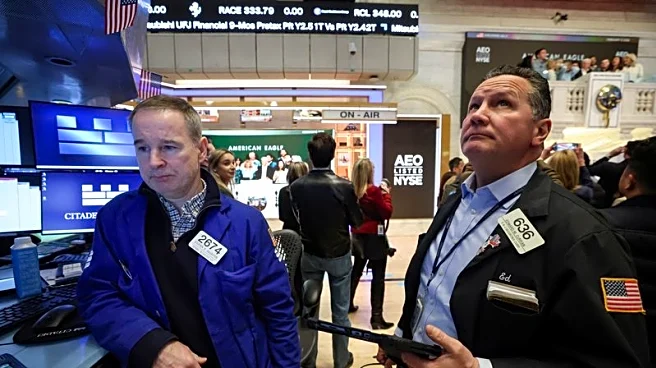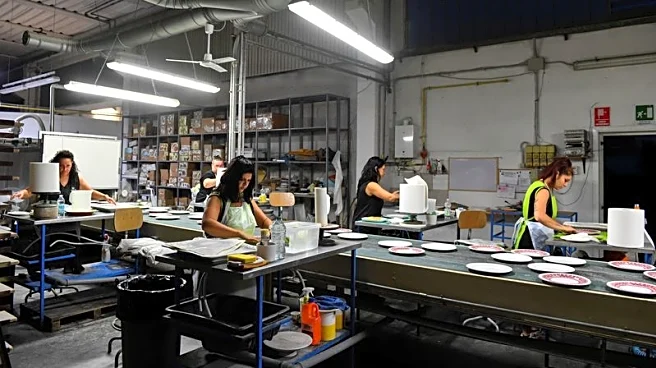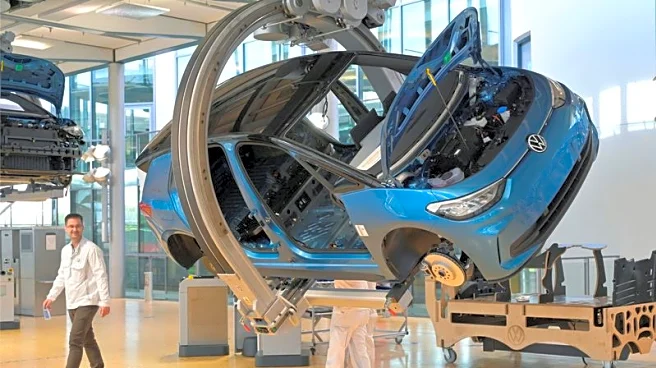What's Happening?
The GIANT Company has announced a $100,000 donation to The Nature Conservancy to support regenerative agriculture practices in the Chesapeake Bay region. This funding aims to assist farmers in adopting
new technologies and innovative practices that reduce tillage, promote the use of multi-species cover crops, and decrease fertilizer application. The initiative is designed to improve water quality in local streams across Delaware, Pennsylvania, and Maryland, ultimately benefiting the Chesapeake Bay. Rebecca Lupfer, chief merchant at The GIANT Company, emphasized the importance of supporting food and agriculture partners to continue providing fresh, quality products to families. The GIANT Company collaborates with over 100 local farms to ensure high-quality produce for its customers.
Why It's Important?
This donation is significant as it highlights the growing trend of businesses investing in sustainable agricultural practices. By supporting regenerative agriculture, The GIANT Company is contributing to environmental conservation efforts and promoting sustainable farming methods that can lead to cleaner water and healthier ecosystems. This initiative not only benefits the environment but also supports local farmers by providing them with the resources to implement cost-effective and environmentally friendly practices. The move reflects a broader shift in the industry towards sustainability, which can enhance brand reputation and customer loyalty while addressing critical environmental challenges.
What's Next?
The funding will enable The Nature Conservancy to work closely with farmers in the Chesapeake Bay region to test and implement these innovative agricultural practices. As these practices are adopted, there may be measurable improvements in water quality and soil health, which could serve as a model for other regions. The success of this initiative could encourage more companies to invest in similar sustainable practices, potentially leading to widespread adoption of regenerative agriculture across the country. Stakeholders, including environmental groups and local communities, will likely monitor the outcomes closely to assess the impact and scalability of these practices.










